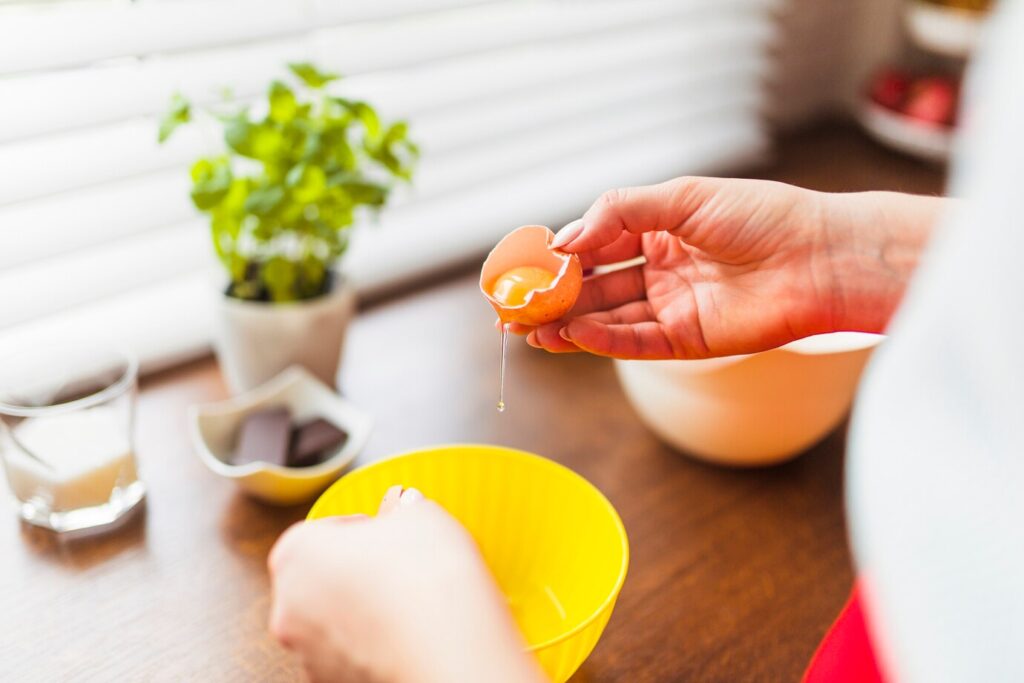Eggs are among the most multipurpose and primary ingredients in any kitchen worldwide. Unluckily, it is usually to get food poisoning from a bad egg, which ruins one’s recipe. It is important to differentiate whether the eggs have gone bad to help a person maintain health and freshness of the meal. Herein are key ways of how to tell if eggs are bad, and when to throw them away, and safe storage practices.
How to Tell If Eggs Are Bad: 5 Simple Methods

1. Conduct the Float Test
One of the simplest and most spectacular ways how to tell if eggs are bad is what they call a floating test. Here’s how you do it:
- Take a glass or bowl and fill it with cold water.
- Carefully place the egg into the water.
Results to Interpret:
- Fresh eggs sink to the bottom and lay flat on their sides.
- Older eggs may stand upright or at an angle. They are still safe to eat, but should be used within a relatively short time.
- Bad eggs float to the top because of the increased air pocket inside of them that signals spoilage.
2. Perform the Sniff Test
Another for-sure method of learning how to tell if eggs are bad involves a smell test. Crack the egg into a clean bowl and take a sniff:
- Fresh eggs have little smell or no smell at all.
- Bad eggs have a characteristic, pungent smell of sulfur. If you smell anything unpleasant or sour, discard the egg immediately.
3. Check for Discoloration and Appearance
Another way to determine whether eggs have gone bad or not is by checking visually. Before you actually crack open the egg, look for:
- Shell condition: Any apparent crack, sliminess, or powder deposit is there. Slimy or chalky outside conditions can signal bacterial contamination or mold.
- Egg white and yolk: The white of a fresh egg when opened is a thick gelatinous type, and the yolk is well defined. If the egg white is watery and thin or the yolk is not defined and is discolored (greenish or pinkish tone), it is not fit for consumption.
4. Consider the Expiration Date
Most eggs from a grocery store have a sell-by date or expiration date stamped on the side of the carton. While it’s common for eggs to be good to eat for several weeks beyond the date, proper storage in the refrigerator is key. If one is still in doubt, this check, together with other ways like a float and sniff test, might give a better understanding.
5. Observe Egg Storage Practices
Proper storage is very important to the freshness of the egg. Here are some guidelines:
- Refrigeration: Never take eggs out of the refrigerator. Always keep them in the fridge to maintain bacterial growth at a slow pace. The ideal temperature for this should be less than 40°F or 4°C.
- The eggs’ container needs to be inside the refrigerator, not on the door. There’s a reason why eggs are in a carton, and allowing them to be there, means consistent temperatures and protection from the smell of other foods.
- Checks more often: Sometimes give your eggs a float-and-sniff test to make sure they are still good.
Why It’s Important to Know If Eggs Are Bad

Knowing how to tell if eggs have gone bad will keep you out of harm from food poisoning and its symptoms, such as stomach cramps, vomiting, and diarrhea. Spending a few minutes checking your eggs before use ensures your health is not compromised, and there aren’t any wasted ingredients in your recipe.
Tips to Prolong Egg Freshness
- Don’t wash eggs until ready for use. This removes the natural coating on eggs, which helps protect them from bacteria.
- Store eggs pointy-end down to keep them fresh longer. This keeps the yolk centered.
- Use fresh eggs: Eggs, as they get older, will gradually lose moisture and the air pockets inside will become larger. This can affect the quality of the eggs even though they are not yet spoiled.
Conclusion
Learning how to tell if eggs are bad, will make quite a difference in your kitchen-you can confidently assess the freshness of eggs. You’ll be able to measure egg freshness by the float test, by sniffing, and by the appearance of the eggs, besides proper storage practices. When in doubt, always go on the safe side and avoid using potentially spoiled eggs.




